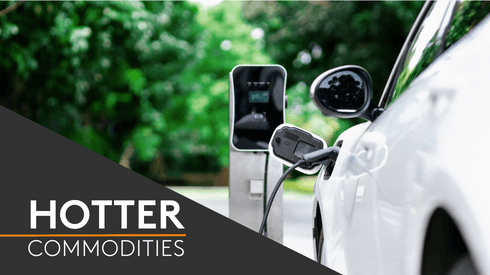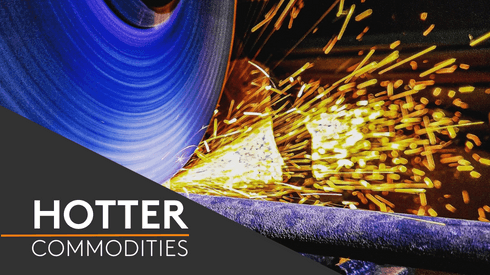In a letter seen by Fastmarkets and coordinated by European metals association Eurometaux, the signatories said that 50% of the EU’s aluminium and zinc capacity has already been forced offline due to the power crisis, as well as significant curtailments in silicon and ferro-alloys production and further impacts felt across copper and nickel sectors.
“Our sector has already been forced to make unprecedented curtailments in the last 12 months,” the letter said. “We are deeply concerned that the winter ahead could deliver a decisive blow to many of our operations, and we call on EU and member state leaders to take emergency action to preserve their strategic electricity-intensive industries and prevent permanent job losses,” the letter added.
The letter – addressed to European Commission President Ursula Von der Leyen, European Parliament President Roberta Metsola, and European Council President Charles Michel – comes ahead of an emergency summit of EU ministers on Friday September 9 to discuss urgent bloc-wide measures to respond to soaring gas and power prices.
“In the last month, several companies have had to announce indefinite closures and many more are on the brink ahead of a life-or-death winter for many operations. Producers face electricity and gas costs over 10 times higher than last year, far exceeding the sales price for their products,” the letter said.
“We know from experience that once a plant is closed it very often becomes a permanent situation, as re-opening implies significant uncertainty and cost,” it noted.
Signatories to the letter included Norsk Hydro, Nyrstar, Boliden, Aurubis, Novelis, Elkem, Mytilineos, plus Glencore’s Portovesme, Asturiana de Zinc and Nordenham units.
It was also signed by Constellium, KME, Amag Austria Metall, Trimet, Aluminium Dunkirque, Vimetco’s Alro, ElvalHalcor, Wieland, ZGH Boldeshaw, Holding KCM 2000, Metalli Estrusi, Slim Aluminium, Raffineria Metalli Cusiana, Safimet, Laminazione Sottile Group, Metalsider2, Befesa Stainless Recycling, Somet, HME, Intals, Renewable Energy Alloys, OFZ, Vargön Alloys, Elektrowerk Weisweiler, Xallas Electricidad y Aleaciones, Ferroglobe, Normalien SpA, Profilglass and Speira.
In addition to Eurometaux, a number of industry associations, including European Aluminium, Assomet, A3M, the European Copper Institute, Unicen, the Nickel Institute and WVMetalle, were also signatories.
All nine electrolytic zinc smelters in the EU have been heavily affected by the power crisis, with many curtailing or completely stopping production. Goldman Sachs has estimated 750,000 tonnes of suspended capacity, equivalent to 45% of total EU production, along with a further reduction from Nyrstar Balen of around 160,000 tonnes of annual capacity.
Similarly, Europe has lost around 1 million tonnes of its primary aluminium output due to curtailments and closures in 2021 and 2022, equivalent to half of its production.
At the same time, around 27% of the region’s 2 million tonnes per year ferro-alloys and silicon production capacity has been curtailed, with around 40% of furnaces closed.
Call to action
According to the letter, a competitive and growing metals sector is needed to support Europe’s clean energy goals, which require a secure supply of the raw materials needed to shift away from fossil fuels.
At the same time, however, metals production needs affordable and available electricity and gas, whether aluminium and zinc today or lithium and cobalt tomorrow, the letter stated.
“We are deeply concerned that Europe faces a critical situation for the foreseeable future, with a perfect storm of sky-high electricity prices, no energy market liquidity due to insecure gas supplies, a continued nuclear and coal-phase out, and the remaining power sources being insufficient to cover market needs,” it said.
Warning that more closures will follow next year and that long-term investment in projects will not materialize, the letter noted that Europe “cannot have a successful energy and raw materials strategy if its power and gas prices stay at today’s levels for a sustained period without relief.”
It also warned the imports from other, higher polluting regions such as China will add to greenhouse gas emissions in the region. For example, Europe’s replacement imports of aluminium have already added 6 million-12 million tonnes of carbon emissions this year, the letter said, with Chinese production of aluminium around three times more carbon intensive than in Europe.
“We call on European and national leaders to look at all available options for safeguarding our companies and their future,” the letter added.
The letter also detailed a series of actions including action to address the price of fossil fuel power generators and carbon prices; improve the temporary state aid framework for struggling companies and cap taxes and surcharges on electricity and gas; promote and incentivize the use of renewable power purchase agreements; minimize the impact of extra carbon costs from the Emissions Trading System; and longer-term support care and maintenance curtailments to increase the chance of survival of impacted operations.
“More widely, it’s important that the European Commission avoids extra regulatory costs on suffering industries in this critical period, diversifies sources of gas supply and evaluates options for temporary solidarity measures to rebalance the windfall profits in other specific sectors during this crisis,” the letter said.
“The discussions on the electricity market and long-term energy supply are important to the European non-ferrous metals industry and we intend to play an active role,” it added.






